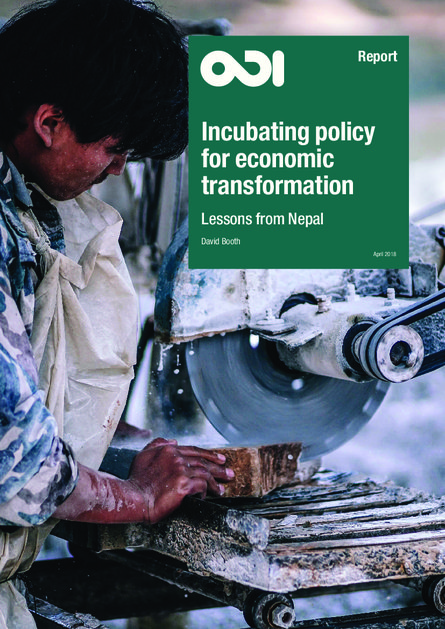
A substantial body of theory now exists on economically sound and politically smart ways of jump-starting progress in poor developing countries. At several levels, however, the practice is lagging behind the theory, meaning there is much to learn from any new experiences suggesting precisely how to advance this agenda.
This paper reports some early successes from a UK Department for International Development-funded programme in Nepal, the Economic Policy Incubator. Although this programme is at a relatively early stage, it has some highly transferable features and has already generated valuable lessons.
The paper begins by expanding on the proposition that practice is not yet matching theory. This is true, it is argued, at three levels:
- economic policy priorities in a world of global value chains;
- smart ways of navigating the political obstacles and reaping the political rewards of wise policy choices; and
- approaches to development assistance that support the ambitious pragmatism that is at the root of successful economic transformation.
At the third level, the needed shift is from solution-driven to problem-driven aid, and from ‘blueprint’ to adaptive programme designs. While the reasons why this is a difficult transition are well known, how to overcome the main hurdles is much less clear.